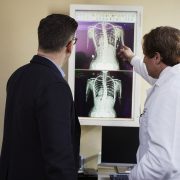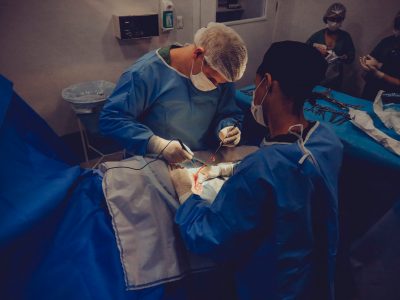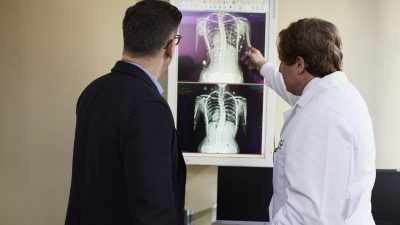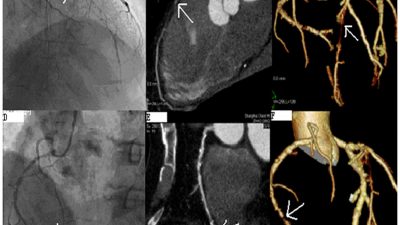Recent news coming out of the Society of Thoracic Surgeons 56th Annual Meeting at the end of January offers a number of considerations related to cardiac surgery quality. This Quality Matters news brief goes beyond STS 2020 to find a detailed feature on the patient’s perspective of cardiac surgery and a breakthrough which could prevent kidney complications from cardiac surgery. But first—a positive outlook on the state of cardiac surgery despite increasing TAVR volume:
How Thoracic Surgeons Can Keep Their Piece of the Pie – MedPage Today
Joseph Bavaria, MD, of the University of Pennsylvania and a past president of the Society of Thoracic Surgeons led a presentation at STS 2020 suggesting that although TAVR surpassed SAVR in the U.S. for the first time in 2019, that “doesn’t spell doom for surgical approaches.” Concomitant SAVR with another procedure is expanding, and surgical approaches have shown strong outcomes in recent trials. “Structural heart disease is now a true sub-specialty within both cardiology and cardiac surgery,” said David Fullerton, MD, executive director of the American Board of Thoracic Surgery. “It’s not all about TAVR. The procedural success of TAVR has catalyzed an explosion in new technology in the last 5-7 years.” Read more »
Safer, Quicker Discharge with Protocols for Enhanced Recovery After Surgery – TCTMD
Two studies presented at STS 2020 suggested that enhanced recovery after surgery (ERAS) protocols could facilitate the “safe discharge of patients from the hospital as soon as 3 days after cardiac surgery without increasing the risk of readmission, morbidity, or mortality,” reads a TCTMD story from last week. “Some of the worries that patients and people have had in the past about enhanced recovery programs is that maybe it’s all about getting patients out of the hospital earlier,” said Daniel T. Engelman, MD, of Baystate Medical Center in Springfield, MA. “It’s actually not… It’s actually following evidence-based standardized best practice in order to get patients out at the right time.” Of course, we’ve seen that higher quality care and lower costs are often connected—so Engelman draws an important distinction. Read more »

Open-heart Surgery Requires both Emotional and Physical Recovery – Star Tribune
Speaking of discharge after surgery—a lengthy feature in Minnesota’s Star Tribune from December provides us with an important patients’ perspective on cardiac surgery, which can be physically and emotionally taxing. “It is the most physically traumatic thing that happens [to a person] in their lives,” said Frazier Eales, MD, FACS of the Minneapolis Heart Institute at Abbott Northwestern Hospital. The feature is written by reporter Randy Furst, 73, who was recovering from his own surgery. “The rehab specialists realize we are riding a psychological roller coaster,” he writes.
Furst captures his own perspective, the many doctors and rehab specialists as we works through cardiac rehab, and perspectives of others going through that process—like Sharon Radd of St. Catherine University. “As my body experiments with feeling ‘normal’ on an increasingly regular basis, my mind recovers at a different pace,” wrote Radd in a blog. “This physical experience has overwhelmingly dominated my relational, emotional, temporal, positional, cognitive, and psychological existence and engagement.” Read more »
Rapid-In SAVR Valves Yield Mixed Real World Results – MedPage Today
More results from STS 2020 have cardiac surgery quality takeaways, with studies suggesting that permanent pacemakers “continue to be a concern with early commercial use of sutureless/rapid deployment (SRD) valves for [SAVR],” according to MedPage Today. “It is not fully known if better implantation techniques can substantially lower the pacemaker rates in a rapid deployment valve, but there is data showing a learning curve to this,” said Michael Reardon, MD, of Houston Methodist Hospital to MedPage Today. “Were the readmission and events more related to the approach (minimal vs. sternotomy) or the valve? From this, we do not know.” Read more »
New Protein Target Could Lead to Breakthrough in Kidney Injury Prevention – University of Michigan Health Lab Blog
The risk of kidney complications might prevent some lifesaving cardiac procedures for patients with comorbid kidney disease and heart and vascular disease, but new research from Michigan Medicine Frankel Cardiovascular Center features a breakthrough which could “dramatically change the outlook of patients at risk of kidney injury,” reads the Michigan Health Lab Blog. “After decades with little progress in the management of kidney disease, we have on our hands a promising new target to prevent acute kidney injury,” says Salim Hayek, MD, of Michigan. Read more »






